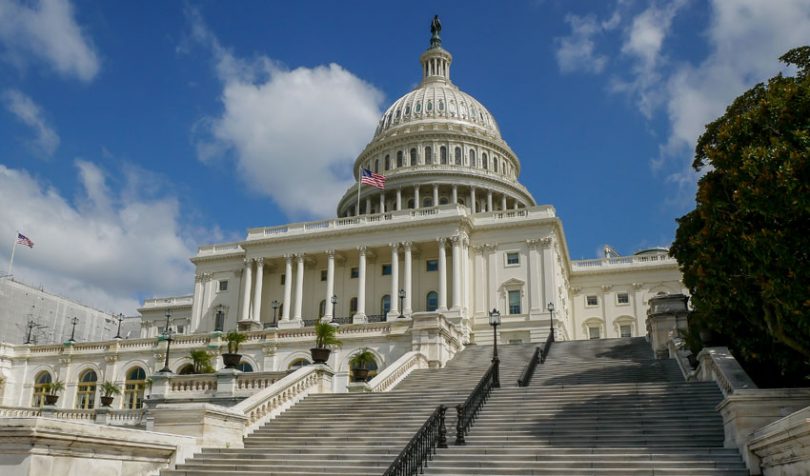Ex Wall Street executive Caitlin Long has provided written testimony for today’s Senate hearings about Facebook’s project Libra. Long warns that blocking cryptocurrency will push the activity and innovations offshore. Rather than fighting the changes, they should be embraced. She rightly points out that stablecoins were invented because banks made it so hard for cryptocurrency investors to use the banking system.
Long is a 22 year Wall Street veteran who was with Morgan Stanley until 2016. And also a Bitcoin evangelist. While the latter has the potential to add bias, she has written some very insightful pieces on banking and blockchain. Hence she was asked for her testimony which has been published in Forbes.
Doesn’t pull any punches on regulation and banking
Her first point is that Facebook’s Libra is highlighting outdated regulations. The creation of stablecoins is but one example.
Another is the U.S. Department of Justice which ran Operation Choke Point from 2013-17 to target high-risk sectors such as gun dealers. Long says the operation also targeted “politically disfavored (but lawful) industries, including the digital currency industry”. As a result, banks don’t want to take the risk of serving these industries.
She accuses the U.S. Government of using access to the U.S. financial system as a weapon. Last year the U.S. withdrew from the Iranian accord. In response INSTEX, the “Instrument in Support of Trade Exchanges”, was set up to enable European companies to make payments to Iran. Long says that the U.S. Treasury “threatened Europe for creating INSTEX as a payment system alternative to SWIFT.” She argues that the U.S. dollar is better served by embracing digital currencies.
Additionally, Long questions both the increasing burden and the balance between compliance and the results achieved. She gave a 2006 statistic of a 0.002% conviction rate for Suspicious Activity Reports.
She sees digital currencies as the first significant payments innovation in 50 years and warns of the risk to the U.S. in pushing the innovation offshore. The inefficiencies of the banking system shouldn’t be protected using regulation. She gave the example of Fnality’s Utility Settlement Coin, a compliant central bank coin backed by major banks which has taken four years so far.
Long advises the Governor of Wyoming. So in terms of a solution, she points to the legislation enacted in Wyoming as an example of the sorts of regulation that can accommodate digital assets.
Rehypothecation
Long has written often about rehypothecation, the practice in which one person pledges an asset as collateral, and the lender then uses the collateral to raise debt. As Long points out, it is common practice in the banking and securities industries. And it has caused instability in financial markets, 2008 is a good example. Wyoming law expressly prohibits rehypothecation of digital assets in a custodial setting.
However, rehypothecation is leverage and effectively increases the pool of digital assets. Bitcoin’s value is in large part based on its scarcity. Hence rehypothecation has the potential to reduce Bitcoin’s value and could be one reason why Bitcoin enthusiasts dislike it so much. Long is a Bitcoin evangelist.
Libra
As a result of the risks of hypothecation, Long believes it’s vital to get assurances that Libra will remain 100% backed by currencies permanently.
There should be no surprise that the Libra Association is in Switzerland, so the U.S. has already lost there.
Turning to privacy issues, there are particular concerns over sharing financial data from Facebook’s Calibra wallet with governments. Long wants a warrant to be required for the U.S. government to access data. She suggests that given Facebook is U.S.-domiciled, it may want to prevent foreign governments from having access to Facebook data for criminal prosecutions. However, the data is likely to relate to citizens under that government’s jurisdiction, a point not addressed by Long.
Under the Federal Reserve’s interest on excess reserves (IOER) program, the Fed is projected to pay $35 billion to banks this year. She questions whether it’s appropriate for Libra to share in this given interest goes to investors, not currency users. The Bank of England is considering allowing fintech’s such as Libra to deposit overnight. Long says this is an example of how Libra will be courted by other jurisdictions.
The hearings start at 10am EST today and will be televised.






